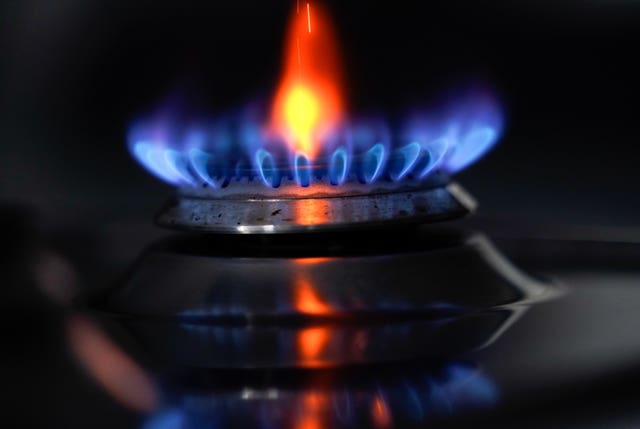Households urged to seek fixed energy deals as latest price cap hike takes effect
The third consecutive increase to Ofgem’s price cap sees the bill of a typical household paying by direct debit rise 6.4% to £1,849 a year.

Millions of households have been urged to consider fixing their energy prices as the latest hike to the price cap sees their bills reach an average £1,849 a year.
The third consecutive increase to Ofgem’s price cap taking effect from Tuesday sees the bill of a typical household paying by direct debit rise 6.4%, an increase of £111 a year or £9.25 a month after it went up by 10% in October and another 1.2% rise in January.
This is 9.4% or £159 higher than this time last year but £531 or 22% lower than at the height of the energy crisis at the start of 2023.
Consumer groups urged the 22 million homes still currently covered by the price cap to consider fixing their prices.
Four million energy customers have moved to a fixed tariff since Ofgem’s last price cap announcement in November, taking the total to 11 million, meaning they will not be affected by the increase.
This was the largest movement of customers coming off the price cap and on to a fixed deal since the energy crisis, the regulator said.
Ben Gallizzi, energy spokesman at switching site Uswitch.com, said: “The cheapest fixed deal on the market could save the average household around £244 a year compared to the April price cap.
“Right now, there are some of the biggest savings we have seen available since March 2024.
“The July price cap is currently predicted to be £1,712, which is £137 lower than the April price cap, but the top 10 cheapest fixed deals offer even bigger savings than the predicted drop, so switching is still the best way to lock in lower rates.”

Which? energy editor Emily Seymour said: “There are deals available for cheaper than the April price cap so it’s worth shopping around to see if you could save by fixing a deal.
“We’d also recommend taking a meter reading as close to 31st March as possible to ensure you’re billed the correct amount for your energy usage.”
Adam Scorer, chief executive of fuel poverty charity National Energy Action, said: “Energy bills rising for a third time in a row is another blow for the millions of households struggling with the cost of energy and other essentials.
“A low-income household spending £1,849 a year or more on energy is not affordable.
“We already see the impacts of sustained high bills, total energy debt is at record levels and rising, and people have been rationing their heating to dangerous levels and going without essentials.”
Meanwhile, a coalition of 35 businesses, charities and energy groups is calling for Energy Secretary Ed Miliband to cut bills by changing green levies.
In a letter to Mr Miliband, the group led by energy security campaigners Electrify Britain and signed by organisations including National Energy Action and Citizens
Advice alongside power companies E.On, Ovo and Octopus, said the Government “must stop making electricity so expensive if they want people to switch away from fossil fuels like gas”.
An average home paid £250 over the year in levies, which raises money for environmental, social and industrial policy schemes, the group said.
If green levies were removed entirely, homes with electric storage heaters, which tend to be in smaller flats, would see a £300 saving.
“Those using only direct electric heating, which includes many of the homes in fuel poverty, would save up to £450.
Electrify Britain chief executive Camilla Born said: “The only way to genuinely cut bills is to get new, cleaner, smarter tech into people’s homes.
“Britain can’t control the price of fossil fuels even with oil and gas production at home.
“The Government needs to get real, stop propping up volatile gas and start embracing the modern tech which benefits from home-grown clean energy we can control.”
The Energy Security and Net Zero spokeswoman for the Liberal Democrats, Pippa Heylings, said: “We call on the Government to urgently consult on reforming energy levies to make electricity cheaper.
“This could help save hundreds of pounds a year, protect families and businesses from the volatility of fossil fuel prices under the control of authoritarian regimes, and get us back on track with our climate targets.”
Minister for Energy Consumers Miatta Fahnbulleh said: “This is obviously a worrying time for families across the UK, which is why we remain determined to get bills down in the long term.
“The only way we can do this is to get off the rollercoaster of fossil fuel markets controlled by dictators and petrostates and replace that with clean homegrown power that we control.
“That is why this Government is sprinting for clean power – so we can bring down bills for good and give families the security they deserve.
“As we build up our homegrown power, we are doing everything we can to support people with their bills, from proposing to expand the £150 Warm Home Discount to around six million households next winter, to upgrading thousands of homes so they are warmer and cost less to heat.”





